Kyrgyzstan’s New President, His Criminal Past and How He Seized Parliament by Force: A Detailed Account
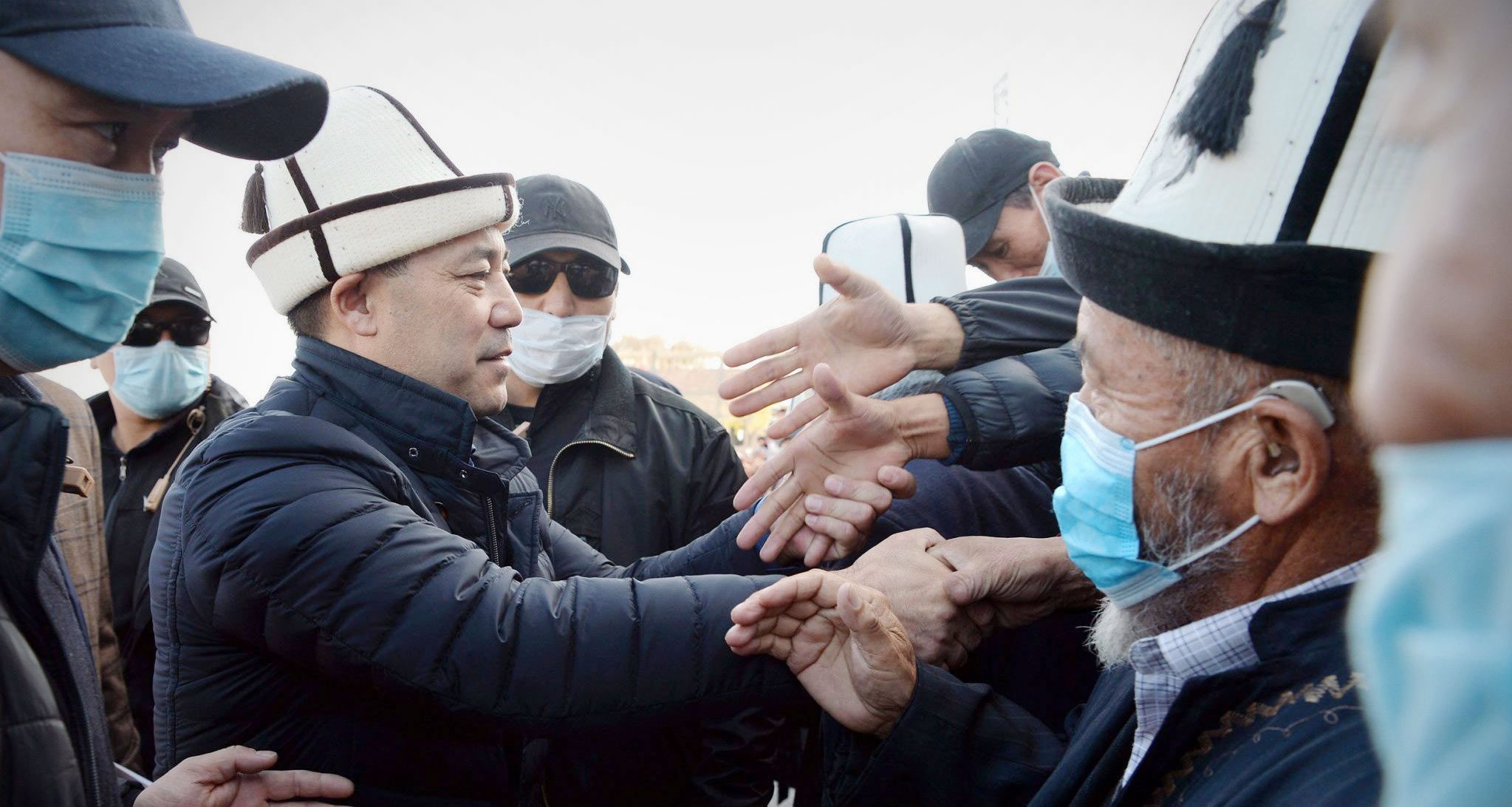
On January 10, Kyrgyzstan elected a new president. He was appointed after the overthrow of the government during the October 2020 protests. People took to the streets due to massive fraud in the parliamentary elections when 12 of the 16 participating parties did not overcome the 7% barrier.
Now Sadyr Japarov has become the head of the country after receiving almost 80% of the votes. Today he promises to transform Kyrgyzstan into a presidential republic and drastically change the Constitution.
Japarov’s career was, arguably, helped by Kyrgyzstan’s former president, Kurmanbek Bakiyev, who is now on the run, and by the international drug lord Kamchibek Kolbayev. In an exclusive for Zaborona, the Kyrgyz lawyer and human rights activist Leila Nazgul Seyitbek tells us about Sadyr Japarov and what will come of his leadership.
A 10-Year Journey
It’s April 2010. Kyrgyzstan’s parliamentary building is being stormed, the police are shooting at protestors, and Kyrgyzstan’s acting president is fleeing to Belarus. Thousands of people took to the streets in order to overthrow the head of state and the government. Bakiyev has been building an autocracy for five years in Kyrgyzstan: his party received the maximum number of seats in parliament, the opposition lost its places all together, corruption was on the rise, and political opponents were being killed.
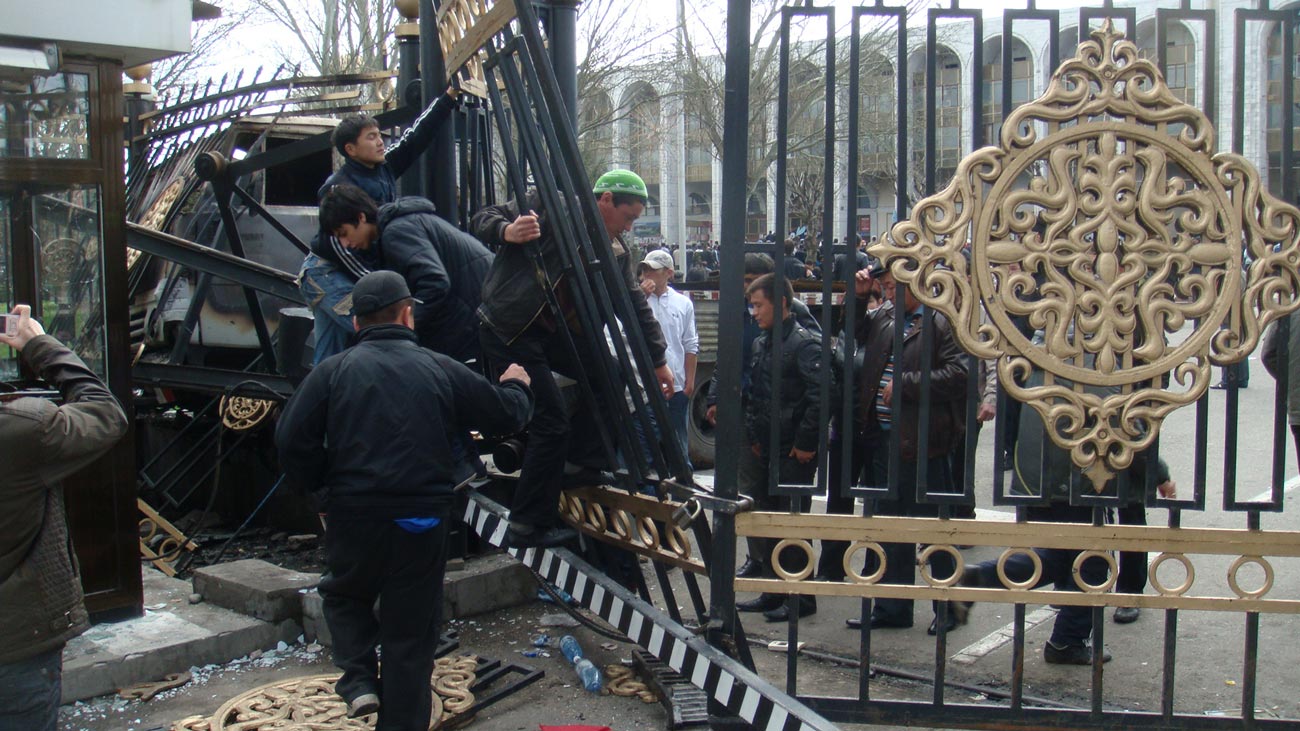
After the protests, the country was led by Roza Otunbayeva, and a new parliament was elected. But in May, telephone recordings of conversations between people planning to return Bakiyev to power had already appeared on YouTube. In the recordings there were voices resembling those of Bakiyev’s son and brother, Maxim and Janysh.
The two men were discussing plans for the upcoming parliamentary elections of 2010. And there’s more—they were discussing scenarios for seizing power in the country, using figureheads. They talked about plans for a sudden and rigid establishment of control and about intentions to bring someone into politics who would be liked by the people and who would declare himself the leader of Kyrgyzstan.
But none of the scenarios they discussed came to fruition in the ensuing months, and the compiled recordings were forgotten. Since then, Kyrgyzstan has gone through more than one protest and more than one president. In 2020, Sadyr Japarov became president by taking advantage of one such protest. Supporters illegally broke Japarov out of prison and then forced legislators to appoint him prime minister. Due to his not being a particularly notable figure under fugitive-President Bakiyev, people did not view him negatively. Thus, by employing nationalist rhetoric and making populist promises to change people’s lives for the better, Japarov beat the competition.
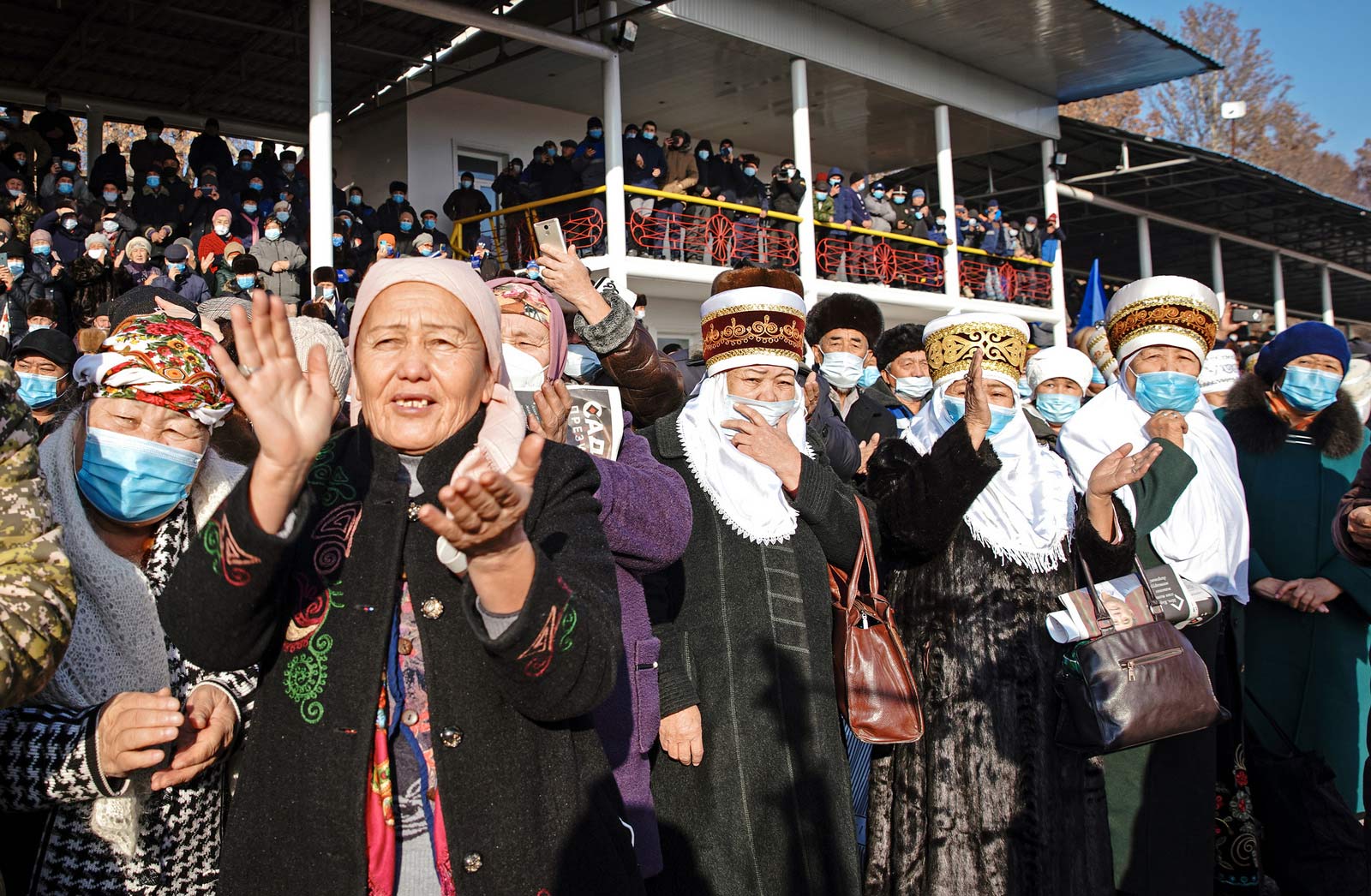
“It took us a long time to get here. And we didn’t do it in four months, but in ten years: our work has been going on since 2010,” he said in a January interview.
That “we” includes Japarov himself, the current chairman of the State Committee for National Security Kamchybek Tashiev, and the Speaker of the Parliament Talant Mamytov. All of these people have long been familiar names in Kyrgyz politics.
Japarov, Tashiev, and Mamytov
Sadyr Japarov was somebody high up in the inner circle of former President Bakiyev. A gym teacher by training, he had worked on collective farms and in small private firms up until 2005. But in 2005, he got into politics and headed the opposition faction Kelechek in the parliamentary elections.
Massive legal violations during the elections, as well as baseless disqualifications of candidates, made people to take to the streets. In 2005, a coup d’état took place in Kyrgyzstan. That’s how the then Prime Minister Kurmanbek Bakiyev got the post of president and how Japarov’s career took off. He initially became an adviser to the president; then, he headed the Agency for the Prevention of Corruption, created by Bakiyev himself.
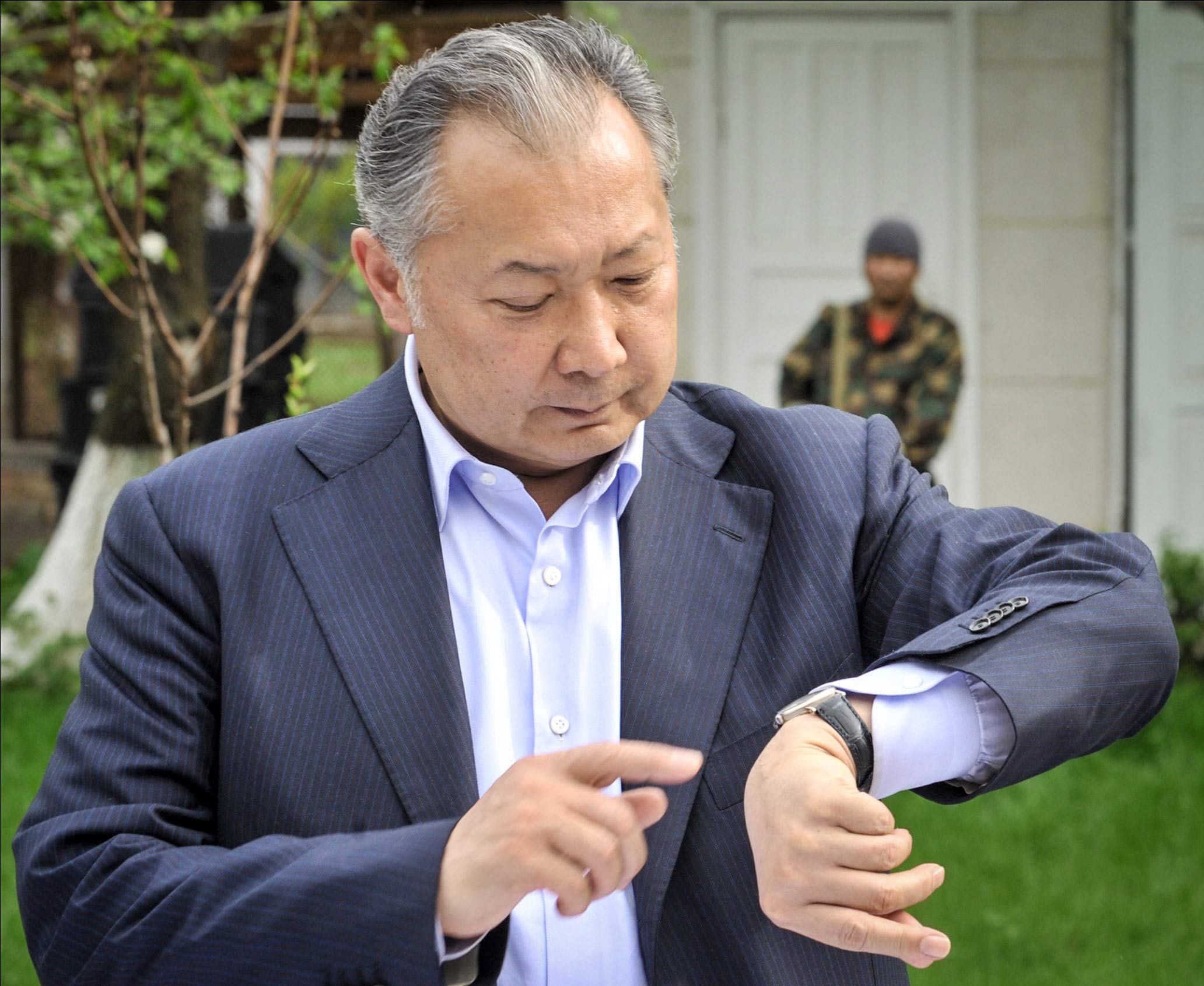
Bakiyev repeated the fate of his predecessor by losing power as a result of the 2010 revolution. Japarov then disappeared from the political arena for several months, but he soon returned. His return was helped by inter-ethnic clashes between Kyrgyz and Uzbeks in the south of the country. This is a long-standing conflict, but it was exacerbated during the revolution. Japarov and the former Minster of Emergency Situations Kamchybek Tashiev went there, allegedly, to resolve the situation. However, eyewitnesses claim that the politicians only supported ethnic Kyrgyz people.
Japarov didn’t miss the mark with his nationalist ideology: in the 2010 parliamentary elections, he, Tashiev, and the ex-regional prosecutor Talant Mamytov received mandates from the Nationalist Party Ata-Zhurt (“Fatherland”), which had become the largest party in parliament. However, gaining seats in parliament was not enough for them. In October 2012, when the country was headed by Almazbek Atambayev, Japarov, Tashiev, and Mamytov called on people to storm the White House.
The formal reason for this protest was the nationalization of the Kumtor gold mining plant. It belongs to the Canadian corporation Centerra Gold, and Kyrgyzstan owns 27% of the shares. Japarov claimed that the contract was made with unfavorable terms for Kyrgyzstan. A more likely reason for the protest was an attempt to seize power in the country.

While Japarov entered parliament armed and wearing a bullet-proof vest, his legislator allies, Mamytov and Tashiev, led people to storm the parliament’s fence. They were equipped with a large arsenal: traumatic pistols (a less lethal handgun that employs rubber bullets), Makarov pistols (a Soviet semi-automatic handgun), hunting rifles with hundreds of rounds of ammunition, metal crowbars, rocks, and knives.
But the assault failed. The legislators who instigated the riot were arrested and given one and a half year sentences for attempting to seize power from the state, instead of the 20-year sentences that prosecutors had sought. However, the charges were dropped in 2013. The judge who did this was removed, but he later became a legislator from the Ata-Zhurt party, and now he’s the Prosecutor General.
Japarov has continued to organize a multitude of protests under the pretext of nationalizing the Kumtor gold mine. After one such protest in May 2013, the residents of villages near Issyk-Kul seized an electrical substation and cut off the power supply to the gold mining enterprise. At the same time, certain unknown persons extorted $3 million from the manager of the Canadian company Centerra Gold in exchange for stopping the protests. During the next protest, a representative of Issyk-Kul’s regional government was taken hostage and his captors threatened to set him on fire. The police got involved in the matter, and the hostage was released.
Witnesses who were questioned said that Japarov and Tashiev had been involved in the matter. As a result, a criminal case was opened against Sadyr Japarov for charges of threatening to murder, hostage-taking, and disrupting public order. He was supposed to be imprisoned for 11 years, but he fled to Minsk.
His Own People
In 2017, Sadyr Japarov announced on Facebook that he would be returning to Kyrgyzstan. He was going to meet up with thousands of his supporters, lead a protect, and take part in the presidential elections. Japarov was confident that his nationalistic rhetoric and his support for nationalizing mining enterprises had not been forgotten. But things didn’t go as planned.
At the border, the law enforcement officers outnumbered his supporters. Japarov was immediately arrested and placed in a detention center.
However, rallies for his release had been being held up until 2020. They were attended by the bodyguards of the family of the fugitive president Bakiyev. At this time, support for the current president Sooronbay Jeenbekov had fallen among the populace amid economic problems and corruption. What’s more, voter fraud in the 2020 elections only increased public discontent. This again led to protests. These protests were taken advantage of to free Japarov. Tashiev and Mamytov gathered a group of supporters, broke into the prison, and busted Japarov out. Then, they brought several men in tracksuits into parliament and, with their help, forced the legislators to confirm Japarov as the prime minister and the courts to overturn his convictions.

After the protestors had seized the White House and broken Japarov out of prison, the crime boss Kamchibek Kolbayev’s motorcade arrived at the state residence. He is one of the foremost drug lords and mafiosos on the Eurasian continent. Leyla Seyitbek suggests that Kolbayev was one of the individuals who participated in the negotiations for the government’s early resignation.
The president of Kyrgyzstan and this drug lord, more likely than not, have known each other for several years. Additionally, they have plenty of mutual acquaintances, says Seyitbek. For example, Kolbayev’s right hand man Ulan Cholponbayev was a member of parliament from the Ata-Zhurt party in the same assembly as Japarov.
After all the events of October, an early presidential election was scheduled for January 2021 in Kyrgyzstan. Japarov won. Tashiev became the Chairman of the State Committee for National Security, and Mamytov became the Speaker of the Parliament.
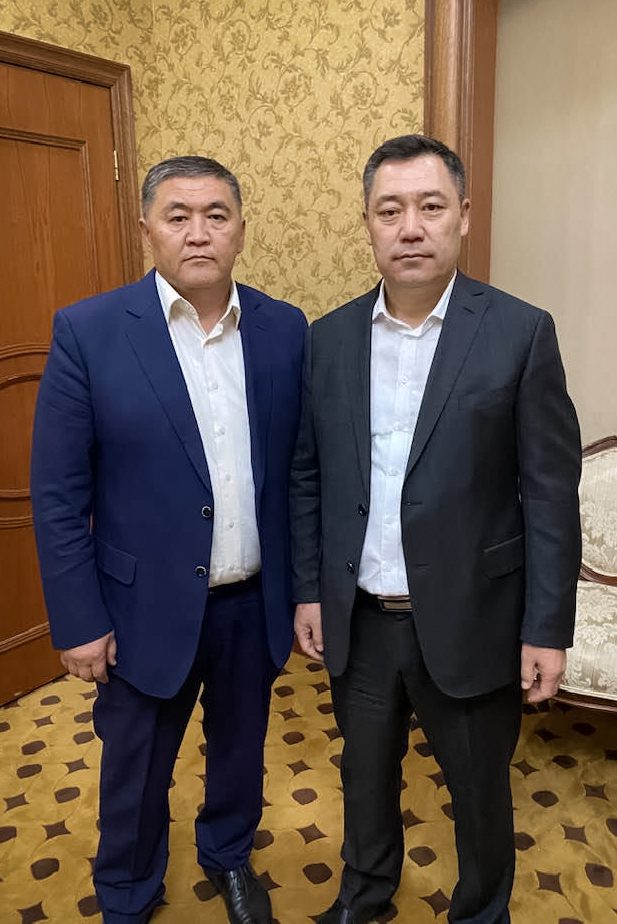
Today, more and more people from the former President Bakiyev’s inner circle are ending up in power. For example, his personal bodyguard Kurmanbek Bayamanov was appointed head of counterintelligence. Kuanychbek Risbayev, a former prosecutor, classmate, and close friend of Maxim Bakiyev became the head of the Main Investigative Department of the State Service for Combating Economic Crimes.
More Power, Fewer Rights
Sadyr Japarov got the country when it was in a difficult state: an economic crisis, a divided society, interethnic conflicts, and mistrust of authorities.
To get more votes, Japarov made a lot of promises, among which included the eradication of corruption and court reforms. However, when he headed the Committee for the Prevention of Corruption under Bakiyev, Kyrgyzstan was one of the worst in Transparency International’s corruption rating.
This year, Kyrgyzstan will carry out constitutional reforms. Japarov intends, Seyitbek notes, for the president to become both the head of state and the head of the executive branch of government.
Additionally, according to the text of the new Constitution, Kyrgyzstan will have new norms regarding “moral values and principles.” The new Constitution also provides for the creation of a new supranational body or Kurultai, a kind of council of elders convened by the president, to which parliament will report. A number of bans, including those on torture, the exploitation of child labor, and criminal prosecution for the dissemination of information discrediting the honor and dignity of the individual, and so on will be removed from the constitution. Zaborona has written about the abduction and rape of brides in Kyrgyzstan before.
The election of Japarov and Kyrgyzstan’s constitutional referendum mark the beginning of another stage of the development of authoritarianism on all levels, the beginning of the suppression of free speech, and the beginning of nationalism. This will lead to protests, both peaceful and violent, claims Erica Marat, a professor at the National Defense University in Washington D.C. The last ten years have shown that no matter how imperfect the government is, the parliamentary system has allowed politicians and businessmen to settle issues in parliament, and not on the streets. Japarov, according to Professor Marat, has taken advantage of people’s disappointment at President Jeenbekov’s inaction during the pandemic and his weak economic policy. Japarov garnered support from both economically disadvantaged segments of the population and the corrupt elite.
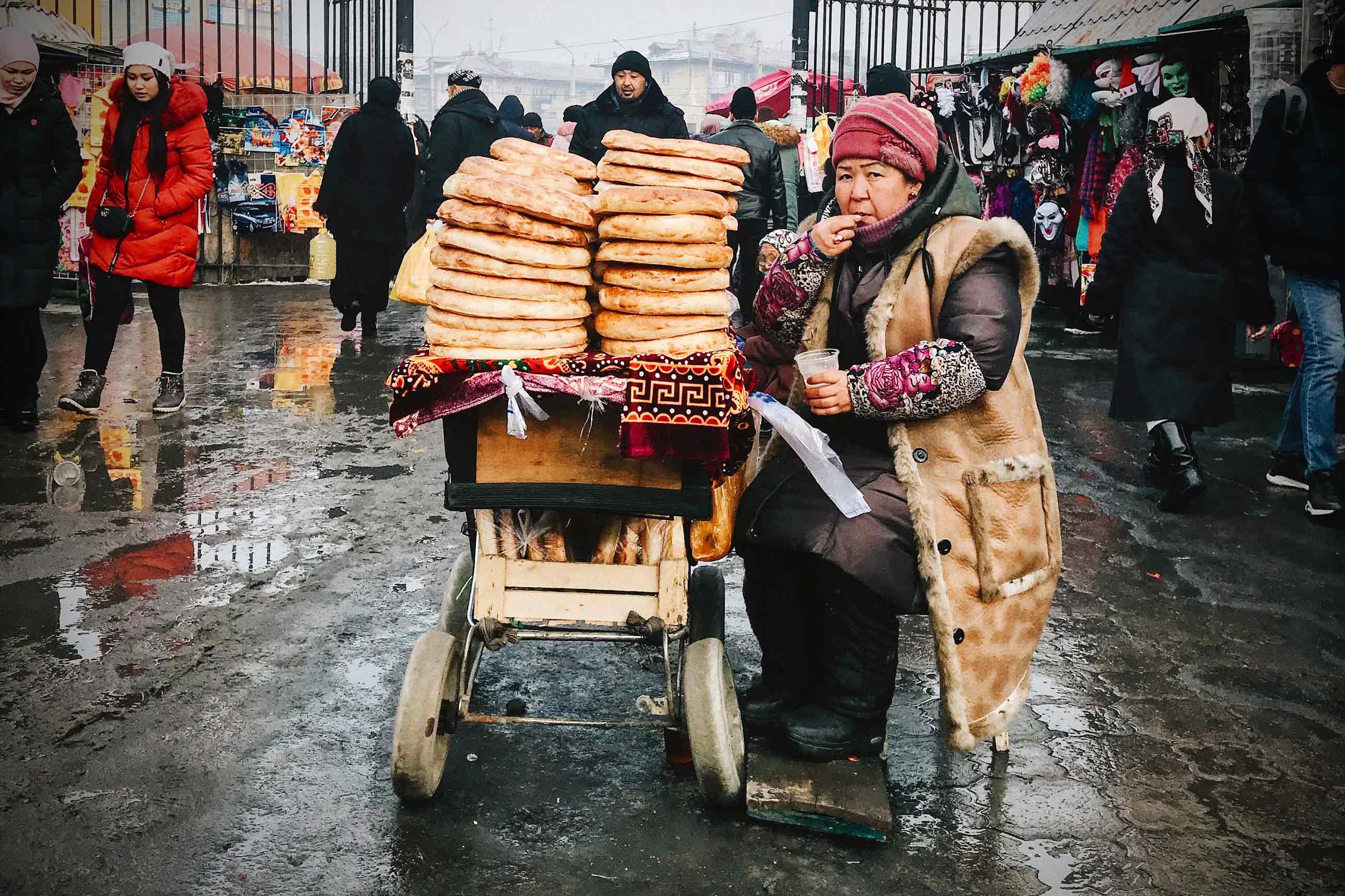
“But this presidential system of government has one goal: increasing Japarov’s powers beyond what the current Constitution allows and strengthening his central role, like that of Putin, Nazarbayev, and other Central Asian neighbors,” Marat believes.
Translated by Taylor Wilson from Respond Crisis Translation




